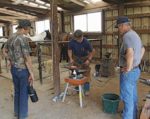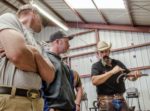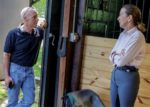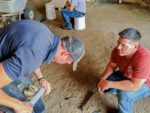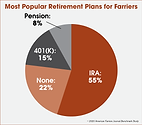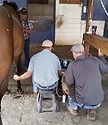Advertise Follow Us
American Farriers Journal
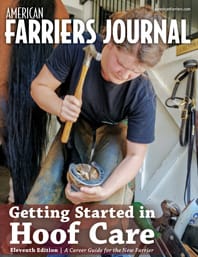
View Archived Issues
Eleventh Edition (2019)
A Career Guide For The New Farrier
This special publication is published once per year by American Farriers Journal. The career guide delivers advice from farriers on how to establish and operate a successful equine footcare practice.
-
Table of Contents
Table of Contents
Grow Your Skills with Continued Education
This article was originally published Aug. 1, 2019 and has been updated.Read MoreQuestions to Ask Before Hiring Clients
This article was originally published August 2, 2019 and has been updated.Read MoreTwo Methods to Consider When Firing Hoof-Care Clients
This article was originally published August 2, 2019 and has been updated.Read MoreWhat’s the Best Retirement Plan for You?
This article was originally published Aug. 3, 2020 and has been updated.Read MoreChoosing the Right Hardware for Your Toolbox
This article was originally published August 4, 2019 and has been updated.Read MoreCritical Keys to Successfully Work with Veterinarians
This article was originally published Aug. 5, 2019 and has been updated.Read More -
Digital Edition
Digital Edition

